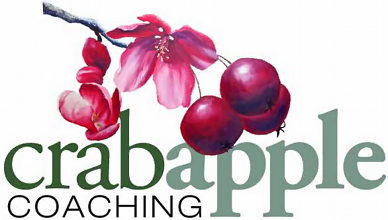 Retirement Stats, Studies and Stuff
Retirement Stats, Studies and Stuff
Recently, I’ve been wondering about creativity – why so many people seek it out in retirement, and why others don’t; what lures us to creativity, and what stops us cold; and what conditions support the creative process. In looking for answers, I dug out an old file in which I had gathered a collection of my favourite ideas from books I was reading at the time, books on the subjects of creative writing, philosophy, and life. I was doing some writing then and was finding the creative process to be both alluring and scary. That was 20 years ago. I’ve made some small headway in my thinking, with the help of many authors, philosophers and thinkers who have expressed their thoughts so well. I’d like to share some of those insights here.
In Care of the Soul, Thomas Moore wrote:
“Art invites us into contemplation – art intensifies the presence of the world. We see it more vividly and more deeply. The emptiness that many people complain dominates their lives comes in part from a failure to let the world in, to perceive it and engage it fully. Naturally, we’ll feel empty if everything we do slides past without sticking. As we have seen, art arrests attention, an important service to the soul. Soul cannot thrive in a fast-paced life because being affected, taking things in and chewing on them, requires time.”
There it is – the creative process deepens our experience of living. We need time to chew over our experiences: to stop, observe, and reflect. In coach training, I learned that all people are meaning-seeking and meaning-making. Creating something gives us that chance to find meaning in what we are experiencing.
Broadening the definition of creativity
Joyce Wycoff describes creativity as “seeing things that everyone around us sees while making connections that no one else has made.” Joseph Campbell says it “consists in going out to find the thing that society hasn’t found yet.” What we create will be unique, because our experiences, background, personality are unique.
Now, some people insist they aren’t interested in being creative, or that they don’t have the talent. I suspect, though, that this thinking comes from a narrow definition of creativity – creativity in the limited sense of traditional arts (e.g., painting, music, dance), rather than one’s own form of problem solving, or expressing ideas. Robert Franken, in his book Human Motivation, identifies three reasons why people are motivated to be creative: the need for novel, varied, and complex stimulation; the need to communicate ideas and values; and, the need to solve problems. When we are creative we bring imagination, original ideas, and an intention to solve something or communicate something.
And our brains love spontaneity and creativity!
Our brains love to create
A study by the U.S. National Institutes of Health compared the brain activity of six professional jazz pianists when they played by memory versus when they improvised. An MRI machine was connected to a keyboard and the musicians were asked to play a piece of music straight from memory. They were then asked to improvise. The creativity of improvisation showed up in their brains in three ways – inhibition was switched off, self-expression was switched on, and sensory awareness became heightened. Although music is a traditional art form that some may consider inaccessible in retirement, the lesson is clear – regardless of the form, being involved in an act of creativity produces stimuli that lead to fulfillment.
Full-blast living
Apparently, creativity is about as close to fulfilment as we can get. In an article in Psychology Today, Mihaly Csikszentmihalyi said,
Of all human activities, creativity comes closest to providing the fulfillment we all hope to get in our lives. Call it full-blast living. Creativity is a central source of meaning in our lives. Most of the things that are interesting, important, and human are the result of creativity. When we’re creative, we feel we are living more fully than during the rest of life. The excitement of the artist at the easel or the scientist in the lab comes close to the ideal fulfillment we all hope to get from life, and so rarely do.
It is any wonder so many people long to create?
Yet, I have heard more than one newly retired person express the idea that creating art is not a worthy undertaking. This notion that art is frivolous is one not shared by Albert Einstein, who said, “The Intuitive mind is a sacred gift, the rational mind a faithful servant. We have created a society that honors the servant and has forgotten the gift.” How often have we heard intuition scorned and the rational mind praised? What if we were to reverse the value placed on the two?
The terror of the blank canvas
The real sticking point is that, even if we lauded intuition and the creative spirit, we would still be faced with the paralysis that can come from the fear of making fools of ourselves. If only the blank canvas weren’t so daunting. If only the empty page weren’t so scary. If only we could think with the positivity expressed by George Bernard Shaw, when he said, “A man learns to skate by staggering about making a fool of himself. Indeed he progresses in all things by resolutely making a fool of himself.”
In The Hero’s Journey, Joseph Campbell supported Shaw’s notion, saying, “An artist is not in the field to achieve, to realize, but to become fulfilled…. And it doesn’t matter whether you’re first, second, third rate in the public eye. Each artist, as I know them, is in fulfilment in his or her own way. It’s not a competitive field.”
The conditions necessary to create
The question then becomes: What will support us in tackling our creative endeavours? Michele Jones, a free-spirited and creative coaching friend, once gave me a list of what she considered to be the conditions necessary to increase, nurture and foster creativity:
- Have courage; trust in self
- Be in the moment
- Be open to possibilities
- Respond to gifts presented
- Collaborate with others
- Quiet the mind
- Calm the body
I would add to that a couple more…
- See failure as learning
- Balance challenges with skills
If we welcome failure as learning, and if we don’t overwhelm ourselves by attempting challenges we aren’t prepared for, we may experience creativity in a more playful light. And I can’t help thinking that retirement offers us a rare opportunity to set the conditions necessary for creativity.
I began this article by asking what draws us to creativity, what stops us cold, and what conditions support the process. I think it is clear that creativity deepens our experience of living and fulfils us. Our brains love the creative process, and that process is unique to every individual. Fear of looking like a fool can stop us cold, but it’s okay to stumble around looking like a fool while we learn our craft, because it’s not about creating masterpieces. Finally, there are approaches we can take to nurture and foster creativity, keeping us open, trusting, and imaginative.
Self-coaching questions
When were you at your best, when the gifts you were born with and the talents you developed were braided with what you love?
When will you make time to simply observe and contemplate?
Which of the conditions necessary for creativity do you need to put in place?
How might you enrich your world through creativity?
